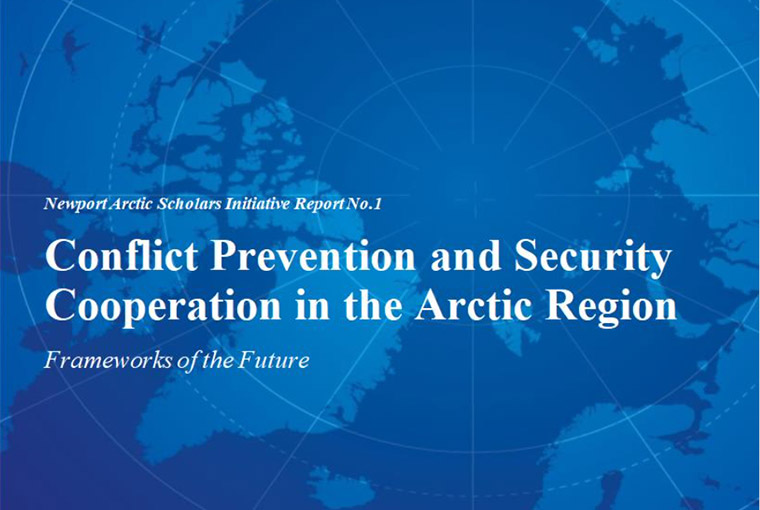Newport Arctic Scholars Initiative Meets to Discuss Need for New Arctic Forums

With a focus on security issues in a rapidly changing Arctic, the Newport Arctic Scholars Initiative met in a virtual seminar June 9-10 to continue work on a report that calls for new forums on Arctic cooperation.
The 2020 Newport Arctic Scholars group convened in January and launched a study of the existing institutions focused on the Arctic, including the 24-year-old intergovernmental Arctic Council and NATO’s strategy for the Arctic. The group also looked at potential gaps in coordination and geostrategic hot spots where future conflict might occur, as climate change continues to diminish Arctic ice.
This collection of scholars from seven Arctic nations is building on work done by the 2019 Newport Arctic Scholars Initiative group, which concluded that greater maritime access and military activity in the Arctic increase the chance of accidents and miscalculations that could lead to conflict.
“We must find a way to mitigate those risks by cultivating awareness, by initiating and committing to confidence-building measures,” said Rear Adm. Shoshana S. Chatfield, Naval War College president, in her welcoming remarks on June 9.
“Discussions among your predecessors always seemed to circle back to the same issue: the lack of a forum, the lack of an Arctic security and defense forum, both at the national level and among navies,” Chatfield said. “And so this is your charge. This is our charge. In January you came to Newport, picked up the baton and committed yourselves to it.”
Co-lead scholar Lars Saunes, retired chief of the Royal Norwegian Navy and a Naval War College CNO distinguished international fellow, said the potential conflicts in the Arctic are now known.
“Our job is not to solve the conflicts but to recommend forums for dialogues that will facilitate political solutions and prevent unintended military escalation,” Saunes said after the seminar.
Adm. James G. Foggo III, commander of Allied Joint Force Command Naples and U.S. Naval Forces Europe and Africa, addressed the Arctic seminar on the first day of the conference. Foggo said he appreciated the group’s innovative thinking, including ideas for creating additional regional discussions such as an Arctic Ocean maritime symposium.
“I like what you are doing,” Foggo told the group via a video conference link. “This is the kind of dialogue and the kind of solutions that I think we need.”
The Arctic nations represented were Canada, Denmark, Finland, Iceland, Norway, Sweden and the United States, though the members are participating as scholars and not as officials of their governments. U.S. policy didn’t allow Russia to be invited, but Naval War College officials have said they hope that the opportunity will come in the future.
The June event was scheduled to occur in Copenhagen, Denmark, co-hosted by the Royal Danish Defence College, but the coronavirus pandemic forced the meeting to go online.
Co-lead scholar Walter Berbrick, a Naval War College associate professor, said the group will likely meet again virtually over the summer to refine its report, which will be edited based on the June workshop. The group will also use the summer to discuss these ideas with heads of navies and leaders in defense ministries in the U.S. and among partner nations.
“We’re looking at new innovative solutions and frameworks, like restarting the Arctic Chiefs of Defense Forum, creating an Arctic Ocean Naval Symposium modeled off the Indian Ocean Naval Symposium, and expanding the U.S.-Russian Prevention of Incidents On and Over the Waters Outside the Territorial Seas Agreement, or INCSEA, across the Arctic region,” Berbrick said after the seminar.
The Newport Scholars’ final 2020 report is expected to be released in the fall.
Tom Culora, dean of the college’s Center for Naval Warfare Studies, concluded the workshop by saying that he is proud to be part of a group that is thinking through hard problems.
“It’s easy for everyone to run to the soccer ball, and obviously now we have a major global crisis with COVID-19 and the economy, and that’s worth the attention of very smart people,” Culora told the group.
“But if all we do is run to the soccer ball, then you are never thinking ahead. And what you are doing is thinking ahead for something that is going to become the next crisis,” he said. “I really applaud you for doing that.”
